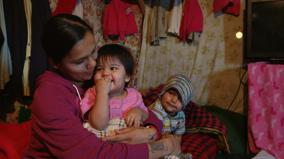Skip to content
Accessibility
RIDM: Showing NFB films for 26 years
RIDM turns 26! Watch 26 documentaries selected at the festival since 1998. Whether shown at opening or closing galas, as world premieres or in competition, these films shine a spotlight on important subjects and showcase talented directors’ work.

























